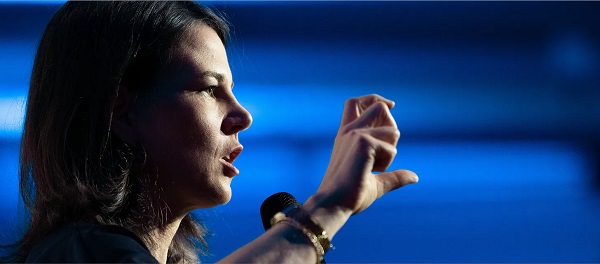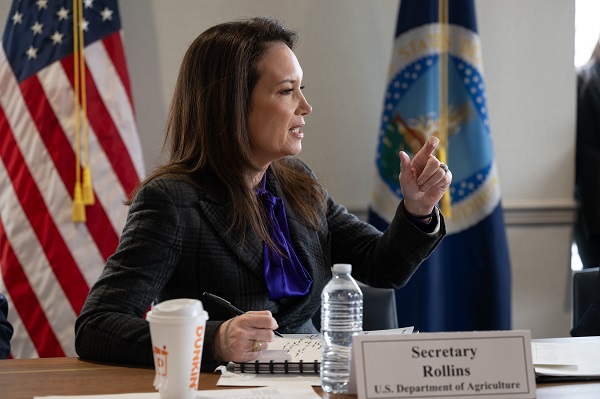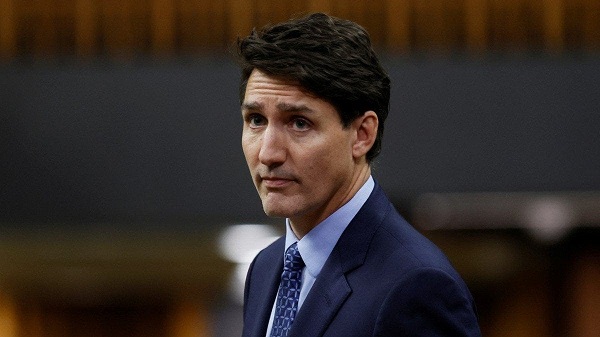National
All Canadian political parties vow to topple Trudeau government regardless of resignation
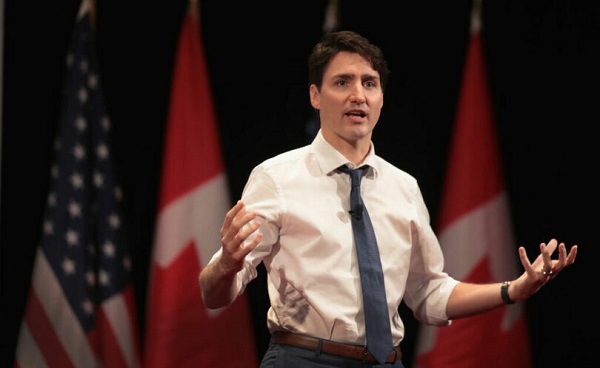
From LifeSiteNews
All major political parties, including the Conservative Party, the New Democratic Party and Bloc Québécois are renewing the call for an early election.
Every major political party in Canada has promised to bring an election as soon as possible regardless of Trudeau’s resignation.
Following Prime Minister Justin Trudeau’s resignation announcement yesterday, all major political parties, including the Conservative Party, the New Democratic Party (NDP) and Bloc Québécois are renewing the call for an early election.
“Nothing has changed,” Conservative Party leader Pierre Poilievre wrote on X.
“Every Liberal MP and Leadership contender supported EVERYTHING Trudeau did for 9 years, and now they want to trick voters by swapping in another Liberal face to keep ripping off Canadians for another 4 years, just like Justin,” he continued.
“The only way to fix what Liberals broke is a carbon tax election to elect common sense Conservatives who will bring home Canada’s promise,” Poilievre declared.
Likewise, NDP leader Jagmeet Singh revealed that he views Trudeau’s resignation as irrelevant as Canadians have tired of the entire Liberal Party.
“We should fire the Liberals,” he said. “They have let down Canadians. They need to get fired.”
“Why not give the government a few more months?” a reporter questioned.
“It does not matter who is chosen as the next Liberal leader,” replied Singh. “They have let you down. They do not deserve another chance. As soon as there is a confidence vote New Democrats will be voting against the government and then we will have an election.”
For the past years, the NDP have been propping up the Trudeau government, which only won a minority government in the last election. So far, every time Conservatives have put forward a non-confidence motion, NDP MPs have voted against it, with the most recent vote taking place on December 9.
However, Singh has since promised to put forward his own non-confidence motion to bring down the Trudeau government in 2025.
Additionally, Bloc Québécois leader Yves-François Blanchet told media that Trudeau’s resignation did not shake his determination to bring down the Liberal government.
“We are beyond that,” he said. “Now is the time for an election which I understand will be held after the Liberal Party has chosen a new leader. There is nothing else to be taken into consideration at this point.”
“There is no possible way for this Liberal Party to become something else in a few weeks,” said Blanchet. “We are facing the same people with the same values, the same ideology. We have to go to an election.”
As it stands, Trudeau has suspended Parliament until March 24, meaning that the Liberal government cannot be brought down during this time. This maneuver buys the Liberal Party a couple months’ time to select a new leader and rebrand their government.
However, the selection of a new leader may not be enough to convince Canadians that the party will not continue Trudeau’s anti-life and anti-freedom legacy.
Indeed, as LifeSiteNews previously reported, each of the possible contenders for Liberal leader is set to plunge Canada into another term of anti-freedom laws
Crime
BC Fentanyl Ring ‘Negotiated’ With Sinaloa Chief ‘El Mayo,’ Court Filings Allege
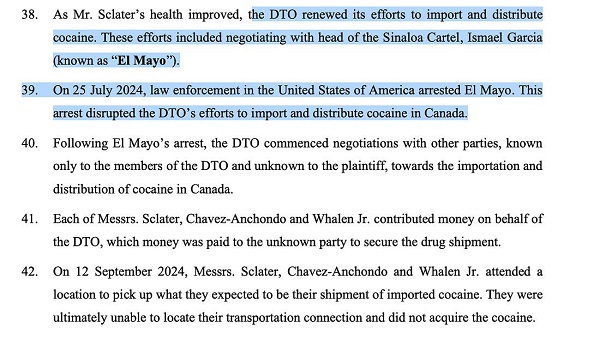
 Sam Cooper
Sam Cooper
A new high-profile British Columbia money laundering case targets an alleged Sinaloa Cartel–linked fentanyl and cocaine trafficking cell established in a mansion near the U.S. border. Court filings say the group was capable of negotiating significant cocaine importation deals with Ismael Garcia—known as “El Mayo”—the reputed Sinaloa Cartel chief.
According to the filings, the Canada-based syndicate comprised at least three men, including Hector Chavez-Anchondo. The lawsuit, filed yesterday by the Director of Civil Forfeiture, contends that they belonged to a violent drug trafficking organization that “used and continues to use violence, or threats of violence, to achieve its aims.”
Investigators allege that the Sinaloa Cartel-linked gang trafficked a range of controlled substances, including ketamine, methamphetamine, Xanax, oxycodone, MDMA, and fentanyl.
“As part of these efforts, the drug trafficking organization has agreed to, and made arrangements to, purchase cocaine from the Cártel de Sinaloa in Mexico,” the filings say. They add that “the Sinaloa Cartel is a terrorist entity, and the government of Canada listed it as such on February 20, 2025.”
Though no criminal convictions have been reported in connection with this lawsuit—first covered by the Vancouver Sun—Canada’s designation of the Sinaloa Cartel as a terrorist organization could have significant ramifications for high-level discussions between the Trump Administration and Ottawa. Washington has intensified pressure on Canada over alleged failures to curb fentanyl trafficking networks, with the dispute escalating into sweeping tariffs amid a mounting trade war.
According to the Royal Canadian Mounted Police, members of the Surrey-based fentanyl and cocaine trafficking network had the clout to negotiate cocaine supply terms directly with García until his arrest by U.S. law enforcement on July 25, 2024. Court filings state that his capture “disrupted the DTO’s efforts to import and distribute cocaine in Canada,” forcing the group to pivot and initiate “negotiations with other parties, known only to the DTO members.”
RCMP investigators say they uncovered a substantial cache of weapons and narcotics during a search of a Surrey property on 77th Avenue on September 23, 2024. The multi-million-dollar mansion is located about 20 minutes from the Peace Arch border crossing in Washington State, north of Seattle.
Court submissions detail the following seized items:
- Firearms: Twenty-three weapons, including ten handguns, two sawed-off shotguns, two hunting rifles, seven assault rifles (two reportedly equipped with screw-on sound suppressors), and a speargun.
- Drugs: Approximately 3.5 kilograms of ketamine and methamphetamine concealed in a hidden compartment in one suspect’s room, hundreds of counterfeit alprazolam pills, and a hidden stash of oxycodone pills.
- Currency: Nearly CAD 15,000 in cash, bundled “not consistent with standard banking practices.”
Authorities also confiscated numerous luxury assets, asserting these represented either instruments or proceeds of unlawful activity. In a filing submitted today, a lawyer for the Director of Asset Seizure wrote:
“There is a triable question as to whether the Vehicles, the Motorcycles, the Azure Boat, the Trailer, the Money, the Jewellery, and other Valuables and Electronic Devices are either instruments or proceeds of unlawful activity. Drug trafficking is a cash business. Persons involved in illegal drug activity frequently carry large sums of cash, either to purchase drugs or as proceeds from drug sales. Currency itself can be an instrument of unlawful activity, facilitating further drug transactions.”
Seized vehicles included a 2006 GMC Sierra, a 2002 Ford F350, a 2006 Land Rover, a 2018 Dodge Ram 1500 Sport, a 2006 Dodge Charger R/T, and a restored 1950 vintage Ford. Investigators also confiscated upscale motorcycles, such as a 2012 Harley Davidson and custom bikes featuring elaborate flame motifs. An Azure AZ238 boat, along with its Shoreland’r trailer, was taken as well.
more to come
The Bureau is a reader-supported publication.
To receive new posts and support my work, consider becoming a free or paid subscriber.
Carbon Tax
Carney’s climate plan will continue to cost Canadians

From the Fraser Institute
Mark Carney, our next prime minister, has floated a climate policy plan that he says will be better for Canadians than the “divisive [read: widely hated] consumer carbon tax.”
But in reality, Carney’s plan is an exercise in misdirection. Under his plan, instead of paying the “consumer carbon tax” directly and receiving carbon rebates, Canadians will pay more via higher prices for products that flow from Canada’s “large industrial emitters” who Carney plans to saddle with higher carbon taxes, indirectly imposing the consumer carbon tax by passing those costs onto Canadians.
Carney also wants to shift government subsidies to consumer products of so-called “clean technologies.” As Carney told the National Observer, “We’re introducing changes so that if you decide to insulate your home, install a heat pump, or switch to a fuel-efficient car, those companies will pay you—not the taxpayer, not the government, but those companies.” What Carney does not mention is that much of the costs imposed on “those companies” will also be folded into the costs of the products consumers buy, but the cause of rising prices will be less distinguishable and attributable to government action.
Moreover, Carney says he wants to make Canada a “clean energy superpower” and “expand and modernize our energy infrastructure so that we are less dependent on foreign suppliers, and the United States as a customer.” But this too is absurd. Far from being in any way poised to become a “clean energy superpower,” Canada likely won’t meet its own projected electricity demand by 2050 under existing environmental regulations.
For example, to generate the electricity needed through 2050 solely with solar power, Canada would need to build 840 solar-power generation stations the size of Alberta’s Travers Solar Project, which would take about 1,700 construction-years to accomplish. If we went with wind power to meet future demand, Canada would need to build 574 wind-power installations the size of Quebec’s Seigneurie de Beaupre wind-power station, which would take about 1,150 construction years to accomplish. And if we relied solely on hydropower, we’d need to build 134 hydro-power facilities the size of the Site C power station in British Columbia, which would take 938 construction years to accomplish. Finally, if we relied solely on nuclear power, we’d need to construct 16 new nuclear plants the size of Ontario’s Bruce Nuclear Generating Station, taking “only” 112 construction years to accomplish.
Again, Mark Carney’s climate plan is an exercise in misdirection—a rhetorical sleight of hand to convince Canadians that he’ll lighten the burden on taxpayers and shift away from the Trudeau government’s overzealous climate policies of the past decade. But scratch the surface of the Carney plan and you’ll see climate policies that will hit Canadian consumers harder, with likely higher prices for goods and services. As a federal election looms, Canadians should demand from all candidates—no matter their political stripe—a detailed plan to rekindle Canada’s energy sector and truly lighten the load for Canadians and their families.
-
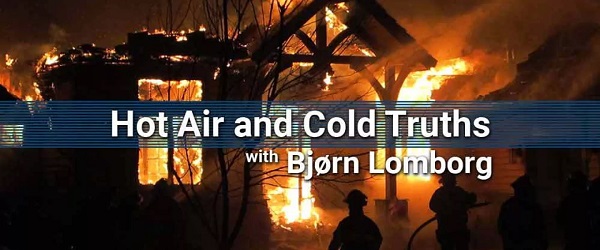
 Bjorn Lomborg1 day ago
Bjorn Lomborg1 day agoDespite what activists say, the planet is not on fire
-

 Business2 days ago
Business2 days ago38 state AGs, DoJ announce plan to end Google’s search monopoly
-
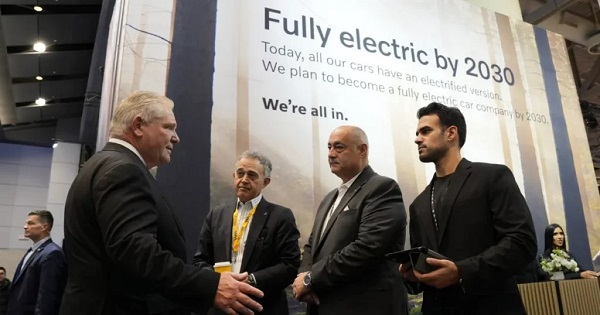
 Business2 days ago
Business2 days agoDoug Ford needs to ditch the net-zero pipedreams
-
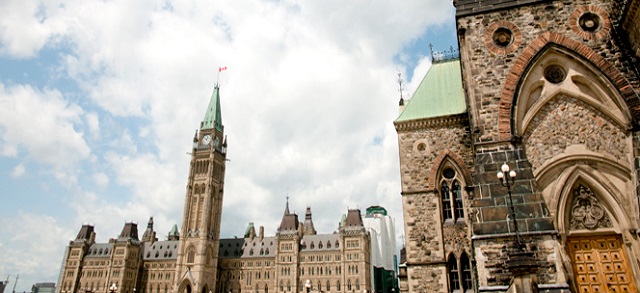
 Business2 days ago
Business2 days agoPoll shows eight-in-10 Canadians oppose MP pay raise
-
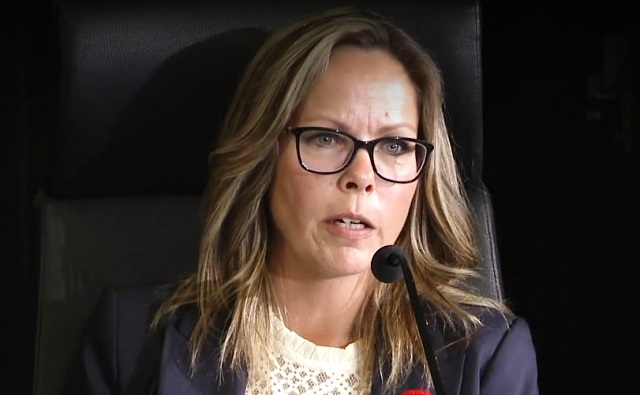
 COVID-192 days ago
COVID-192 days agoVerdict for Freedom Convoy leaders to be read April 3
-

 Business2 days ago
Business2 days agoTrump doubles tariffs on Canadian steel and aluminum imports
-
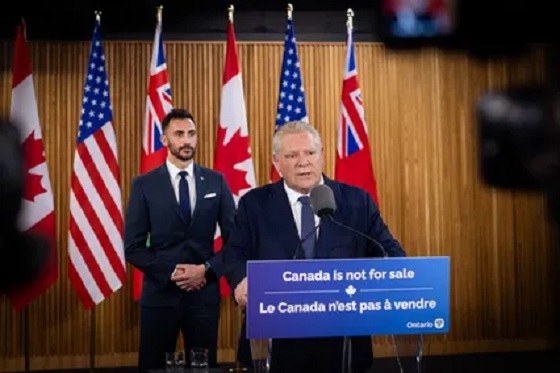
 Business2 days ago
Business2 days agoOntario suspends electricity surcharge after Trump doubles tariffs
-
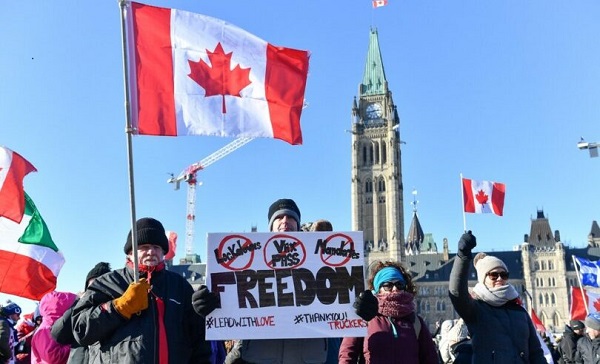
 COVID-192 days ago
COVID-192 days agoCanadian court approves $290 million class action lawsuit against Freedom Convoy

